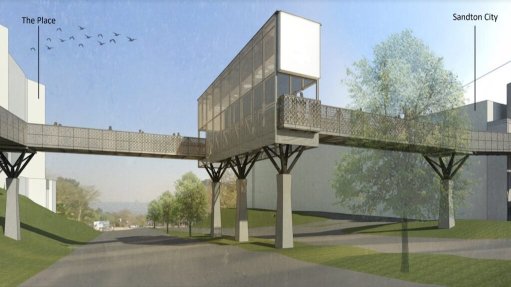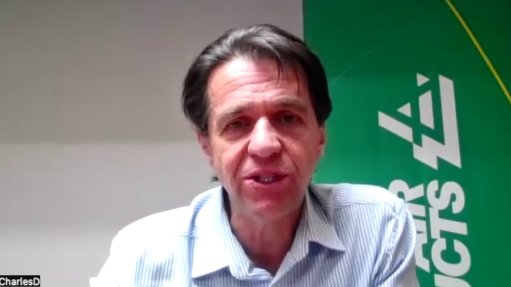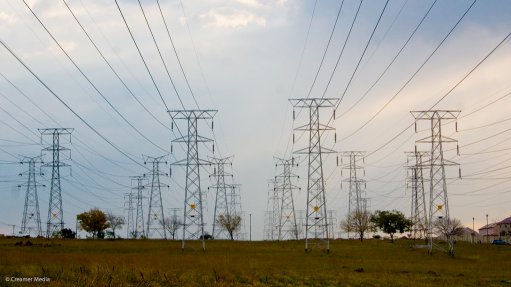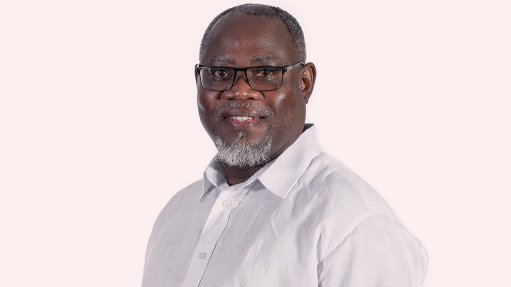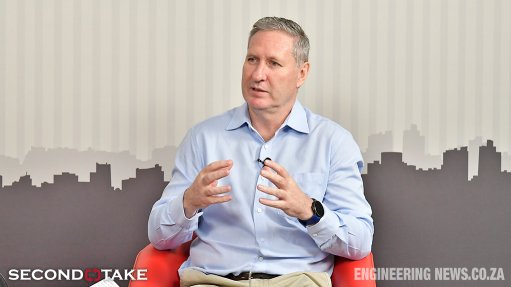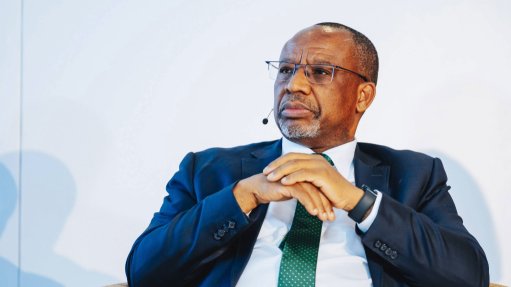Professionalisation, mentorship in focus to drive sustainable infrastructure development
Mentorship of new entrants and the professionalisation of practitioners will help people in the construction industry to excel and build roads, water infrastructure and houses that last, and build the large-scale, sustainable infrastructure that will transform the shape of the economy.
Industry association the National African Federation for the Building Industry (Nafbi) has a mentorship programme in place in which 120 mentors are mentoring small, medium-sized and microenterprises (SMMEs) on construction sites in partnership with the South African National Roads Agency Limited (Sanral), utility Rand Water and professionals' association the South African Council for the Project and Construction Management Professions (SACPCMP).
On Sanral sites alone, 44 mentors are coaching more than 400 SMMEs, said Nafbi national president Aubrey Tshalata in his introduction during the Stakeholder Engagement Forum, which marked the start of the Big 5 Construct South Africa conference and African Smart Cities Summit, held in Midrand, on June 4.
"Part of the engagement in the industry at this conference must include a focus on how to grow the economy and ensure that the construction industry continues to thrive so that it can accelerate the delivery and maintenance of infrastructure," he said.
His sentiments were reinforced by SACPCMP president Lufuno Ratsiku, who emphasised that, just as no one would want unqualified persons performing complicated medical surgery, no one wanted unqualified persons building bridges and structures in communities that people would use and rely on to be safe to use for decades to come.
"True transformation means empowering qualified people who have been trained and placing them in positions where they can apply their skills to ensure infrastructure is fit for purpose, properly designed, planned, implemented, monitored and maintained throughout its lifecycle.
"We seem to think that anyone can bid for construction tenders, but how can a person or organisation that does not understand construction hold accountable a third party that is performing the construction work?" he asked.
"The reason our country is in trouble is because we are looking for transformation without empowering skilled professionals. It is high time that we, as a country, call for professionals to occupy spaces they have been trained to occupy," he said.
Further, this approach ensured space for sustainable transformation and for less trained people to become part of the industry and then become professionals in the built environment, he added.
"Every type of infrastructure in the country, ultimately, is not a matter of politics, but about providing water in communities that do not have water, and of lighting up a dark village. Infrastructure is important for service delivery and the impact it has on societies and communities.
"This is why we [construction professionals] are here. For us, it is about addressing the challenges affecting our communities and finding a better way forward," he said.
Infrastructure was the heart of the economy, and the construction industry and the people working in it were important to deliver the infrastructure that would enable the country to become internationally competitive and excel, said business organisation Business Unity South Africa president Mxolisi Mgojo.
"The construction sector has been in decline since 2016, with a 5% drop in gross value add from 2016 to 2021. The economy only grew 0.4% during this period. Our economy cannot transform with such a low growth rate."
However, statutory body the Construction Industry Development Board expected that increasing government investment in large construction projects would lead to strong demand for contractors, subcontractors and construction professionals over the coming years, Mgojo said.
"Research and consulting firm ConsTrack360 forecasts that the construction industry will see compound annual growth of 5.8% between 2023 to 2027, but how can the industry achieve this?
"The critical issues impacting on the sector include loadshedding and poor electricity infrastructure, transport and logistics, disruptions, rising labour costs, a shortage of skilled personnel, slow adoption of technology, delays, cost overruns and safety concerns," he noted.
Further, following the recent peaceful elections in which no party won an outright majority, the country had a chance to set aside political and ideological schisms and collaborate to benefit the nation through the development of infrastructure, he added.
South Africa must build its communities, create jobs and enhance lives, but it was crucial that the right political decisions were made to enable this vision. The skills of people in the industry mattered.
"We are where we are today, with high levels of unemployment, inequality and poverty, because we have placed people in positions for which they are underqualified or unqualified.
"The opportunity now arises that, despite difference between parties, there is potentially enough agreement on the common good to achieve progress and address the political issues that are impacting on the growth and profitability of the sector. The growth of the construction sector relies heavily on a supportive environment," said Mgojo.
Additionally, it was vital for the construction sector to operate effectively, because it could create jobs and train low skilled people, including through mentorship programmes, to construct the infrastructure and housing that would improve the overall living conditions of the population, he said.
This would promote sustainable socioeconomic development.
Large and multinational construction companies also had a role to play in development and supporting the growth of the construction sector in South Africa. Specifically, they could contribute to the growth and advancement of small businesses owned by black people.
Local businesses could use expert mentoring to professionalise and not only become small or medium-sized businesses, but large and global companies that were highly professional and successful, he said.
"Transformation and growth are interconnected. The development of infrastructure must lead to more jobs, deal with inequality and promote sustainable growth and development of the nation," he emphasised.
The roads network was a critical asset for the people of South Africa and the economy, without which the country came to a standstill. If the country did not look after its physical infrastructure, it would be in trouble, noted Sanral marketing and communications GM Vusi Mona.
"Sanral has worked hard to entrench itself as an asset of the people of the country. Prior to 2013, Sanral did fantastic work, and it still does, but we were not integrated with the people of South Africa," he said.
National roads form part of the greater transport infrastructure that all needs to work in tandem for the economy to grow.
"Construction is one of the most important economic sectors, and we are trying to make a positive impact through our investments of billions of rands into the construction and maintenance of roads.
"Through this, we are positively impacting on the lives of people in communities across the country. We are creating thousands of jobs by developing roads and we are creating opportunities for SMMEs, with a focus on youth, women and people with disabilities," he said.
Sanral took deliberate steps to make itself and its role familiar to especially small, black-owned businesses and people, and the communities in which it worked, and awareness and appreciation were beginning to improve, he noted.
"We aspire to be connected to the people of South Africa because this asset is owned by the people of South Africa," said Mona.
Meanwhile, large construction businesses in the country were repositories of considerable skills, knowledge, capacity, expertise and intellectual property, all of which placed South Africa and its national roads on the international map, he noted.
Transformation of the sector needed the commitment of all partners and stakeholders.
"We are acutely aware that big construction companies are reliant on multibillion-rand tenders awarded by us or the State. We want to strengthen them to get more business, but we also want to ensure quality so that they can grow and compete globally.
"However, the condition is that, as you grow, you lift up other participants with you to get a slice of the action. Investments in the country's economy must be of benefit to all citizens," said Mona.
Meanwhile, one of the challenges to infrastructure development identified was that there was a lack of financial, technical and engineering capacity in government organisations to prepare and package projects, to plan effectively and to implement projects on time and in budget, said infrastructure planning and technical support organisation Infrastructure South Africa (ISA) acting head Mameetse Masemola.
"At ISA, we work to accelerate the implementation of infrastructure projects in South Africa to deliver infrastructure at the scale and pace needed to reach the targets of the National Development Plan and the National Infrastructure Plan."
The organisation aims to build confidence in the private sector of the capability of the State through collaboration and supportive partnerships.
"We must build professional capabilities in government to plan and construct infrastructure projects. This is the gap we are aiming to close. Better planning will lead to a more robust project pipeline.
"This work will also contribute to an ethical and capable State for the long-term delivery of infrastructure in the country. Similarly, we work to contribute to the professionalisation of the industry," she said.
ISA has released the Construction Book 2024/25, which details curated projects in network industries and critical infrastructure - specifically energy, water, transportation, ports and logistics projects, as part of the National Infrastructure Plan 2050.
"Professionalisation will play a key role in South Africa’s economic growth, particularly in the development and delivery of key infrastructure," said industry organisation South African Institution of Civil Engineering (SAICE) CEO Sekadi Phayane-Shakhane.
"We need to reinvigorate the technical capacity in our public institutions as well as ensure there are technical decision-makers in each sphere of an infrastructure project life cycle.
"SAICE is committed to collaborating with stakeholders to achieve this professionalisation, driving excellence and innovation in civil engineering to meet societal needs sustainably," she added.
Comments
Press Office
Announcements
What's On
Subscribe to improve your user experience...
Option 1 (equivalent of R125 a month):
Receive a weekly copy of Creamer Media's Engineering News & Mining Weekly magazine
(print copy for those in South Africa and e-magazine for those outside of South Africa)
Receive daily email newsletters
Access to full search results
Access archive of magazine back copies
Access to Projects in Progress
Access to ONE Research Report of your choice in PDF format
Option 2 (equivalent of R375 a month):
All benefits from Option 1
PLUS
Access to Creamer Media's Research Channel Africa for ALL Research Reports, in PDF format, on various industrial and mining sectors
including Electricity; Water; Energy Transition; Hydrogen; Roads, Rail and Ports; Coal; Gold; Platinum; Battery Metals; etc.
Already a subscriber?
Forgotten your password?
Receive weekly copy of Creamer Media's Engineering News & Mining Weekly magazine (print copy for those in South Africa and e-magazine for those outside of South Africa)
➕
Recieve daily email newsletters
➕
Access to full search results
➕
Access archive of magazine back copies
➕
Access to Projects in Progress
➕
Access to ONE Research Report of your choice in PDF format
RESEARCH CHANNEL AFRICA
R4500 (equivalent of R375 a month)
SUBSCRIBEAll benefits from Option 1
➕
Access to Creamer Media's Research Channel Africa for ALL Research Reports on various industrial and mining sectors, in PDF format, including on:
Electricity
➕
Water
➕
Energy Transition
➕
Hydrogen
➕
Roads, Rail and Ports
➕
Coal
➕
Gold
➕
Platinum
➕
Battery Metals
➕
etc.
Receive all benefits from Option 1 or Option 2 delivered to numerous people at your company
➕
Multiple User names and Passwords for simultaneous log-ins
➕
Intranet integration access to all in your organisation







